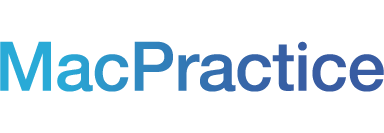
World Backup Day: A Reminder to Secure Your Practice's Future
With World Backup Day approaching on March 31st, it's a timely reminder for all of us, especially healthcare practices, to evaluate and reinforce our data backup strategies. In the era of digital healthcare, data plays a crucial role in our daily operations, encompassing everything from patient records to appointment schedules. The significance of data backup cannot be overstated, as it serves as a safety net against data loss due to unforeseen events like cyberattacks, hardware failures, or natural disasters.
Why Is Data Backup Essential?
Data backup is the process of creating copies of data to enable recovery in the event of primary data failure. Primary data failures can occur for various reasons including accidental deletion, database corruption, or hardware failures. A comprehensive backup strategy is crucial for dental practices to ensure business continuity, protect patient information, and comply with regulatory requirements.

In 2021, there have been many changes in the healthcare industry, particularly with the technologies on which practices depend. As practices adapt to huge developments and challenges in healthcare, they are also adopting new technology to streamline their workflows. Unfortunately, many doctors and practice managers are learning that embracing technology and adapting to it isn't necessarily a synchronized experience within their practice.
 With summer storms, floods, power outages, and hurricanes season right around the corner, many practices are preparing to keep their offices running as smoothly as possible in the event of a disaster or computer failure. As healthcare practices begin annual preparations and plans, they work out strategies to stay online in network outages and prepare their team for emergencies. Having an established disaster recovery plan can help your office to feel more secure about your business's ability to overcome any adverse events, seasonal or otherwise.
With summer storms, floods, power outages, and hurricanes season right around the corner, many practices are preparing to keep their offices running as smoothly as possible in the event of a disaster or computer failure. As healthcare practices begin annual preparations and plans, they work out strategies to stay online in network outages and prepare their team for emergencies. Having an established disaster recovery plan can help your office to feel more secure about your business's ability to overcome any adverse events, seasonal or otherwise.
 After a couple of long years for doctors, practices everywhere are excited to grow their business, enhance patient care, and create a work culture they love. From developing a strategy to bring a practice's financial health into the future to technology's improvements and revenue cycle management, practices are finding opportunities for efficiency and engagement of staff and patients alike. Here are five #PracticeGoals your office can focus on over the summer.
After a couple of long years for doctors, practices everywhere are excited to grow their business, enhance patient care, and create a work culture they love. From developing a strategy to bring a practice's financial health into the future to technology's improvements and revenue cycle management, practices are finding opportunities for efficiency and engagement of staff and patients alike. Here are five #PracticeGoals your office can focus on over the summer.

The average practice spends up to $162 every month on faxing alone. For every 5,000 fax pages, these costs include $72 on toner, $50 per case of paper, and $40 for each fax line – this doesn't even factor in staff cost, time, and disruption of focus. If you consider that your office staff spends approximately 2 minutes per fax – going to and from the fax machine, manually dialing numbers, printing and filing transmission reports, scanning faxes into charts, and locating or duplicating work to find faxes or fax them again. Now, think about the number of faxes your practice gets every day. Multiply by the rate you pay your office staff, and that's how much faxing costs your practice. Doctors and practice managers are frequently surprised by this cost!








